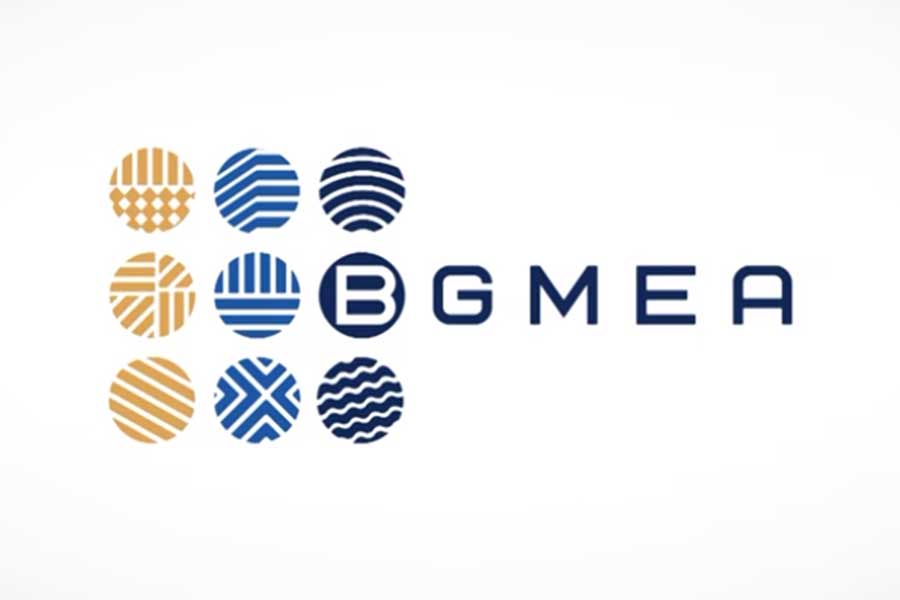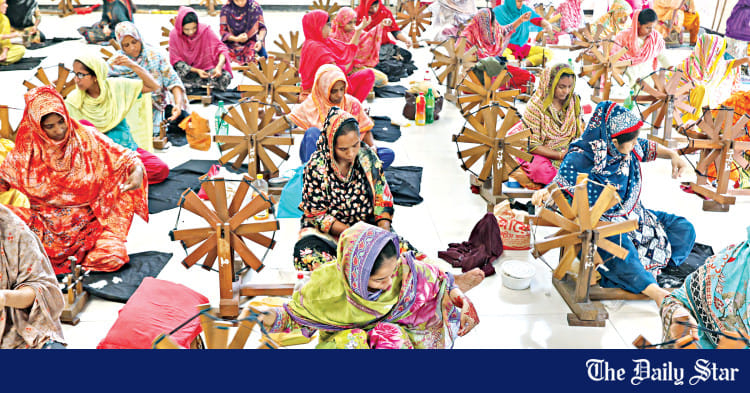Saif
Senior Member
- Messages
- 14,866
- Reaction score
- 7,677
- Origin

- Residence

- Axis Group

- Copy to clipboard
- Thread starter
- #321

Bangladesh to stay as top cotton importer in 2025-26
Bangladesh, the second largest exporter of readymade garment items, is poised to remain the world’s largest raw cotton importer in the marketing year 2025-26, said the US Department of Agriculture...
 www.newagebd.net
www.newagebd.net
Bangladesh to stay as top cotton importer in 2025-26
USDA says
Saddam Hossain 20 May, 2025, 23:30

A file photo shows a worker overseeing a cotton processing machine at a factory in Habiganj. | New Age photo
Bangladesh, the second largest exporter of readymade garment items, is poised to remain the world’s largest raw cotton importer in the marketing year 2025-26, said the US Department of Agriculture.
According to the data titled ‘Cotton: World Markets and Trade’ issued by the Foreign Agricultural Service under USDA, Bangladesh is projected to import 8.5 million bales of cotton in MY26, which starts in August.
USDA data show that in MY24, Bangladesh imported about 7.5 million bales of cotton from its global sources, which may increase to 8.2 million bales at the end of the current MY25.
Vietnam, one of the closest competitors of Bangladesh in the RMG export, is projected to import 8 million bales of cotton in MY26, where China may import 7 million bales, which imported 15 million bales in MY24.
However, Bangladesh remained top cotton importers, with 7 million bales import in MY23, and 8.45 million bales in MY22.
Meanwhile, on March 31, the USDA, in its report titled ‘Cotton and Products Annual,’ stated that Bangladesh’s cotton imports would witness a slight increase in MY26 thanks to increasing demand for RMG items.
According to the Export Promotion Bureau data, in the July-April period of the current FY25, Bangladesh’s RMG exports witnessed a positive growth of 10.86 per cent year-on-year to $30.25 billion.
In MY24, West African cotton held the largest market share in Bangladesh (37 per cent), while other major exporters included Brazil (17 per cent), India (23 per cent), and the United States (9 per cent).
US cotton growers and exporters tried to expand their exports to Bangladesh for years.
It is to be noted that in early April, the US administration announced hefty duties on multiple countries as part of sweeping global tariffs, and Bangladesh was also slapped with a 37 per cent reciprocal tariff. Currently, most Bangladeshi goods in the US face a 15 per cent tariff.
However, after a few days, the US administration paused the declared tariff for a 90-day period.
A number of exporters and experts suggested raising the import of US cotton to reduce the trade gap between Bangladesh and the US.
On 2023, Bangladesh lifted the double fumigation requirement for US cotton, meant US cotton could enter Bangladesh without fumigation at the port of entry, which saved importers millions of dollars and five days of waiting time.
Mohammad Hatem, president of the Bangladesh Knitwear Manufacturers and Exporters Association (BKMEA), said Bangladesh could import more cotton from the US as a part of a broader strategy to reduce the trade gap between the two countries.
He said that the USDA’s import forecast strongly ratifies Bangladesh’s capability to maintain and expand its leadership in the global RMG value chain.
He also said that importing a large amount of cotton from the US may reinforce Bangladesh’s position for bargaining for duty-free access for its RMG items to the US.
He also said that the government’s position in this regard is appreciable.
He added that cotton will always remain vital as a crucial raw material for Bangladesh’s spinners and knitwear producers as a primary source of natural and sustainable fibre.
According to the USDA, Bangladeshi producers could produce about 153,000 bales of cotton on 45,000 hectares of land, which is less than 2 per cent of its total consumption.
USDA says
Saddam Hossain 20 May, 2025, 23:30
A file photo shows a worker overseeing a cotton processing machine at a factory in Habiganj. | New Age photo
Bangladesh, the second largest exporter of readymade garment items, is poised to remain the world’s largest raw cotton importer in the marketing year 2025-26, said the US Department of Agriculture.
According to the data titled ‘Cotton: World Markets and Trade’ issued by the Foreign Agricultural Service under USDA, Bangladesh is projected to import 8.5 million bales of cotton in MY26, which starts in August.
USDA data show that in MY24, Bangladesh imported about 7.5 million bales of cotton from its global sources, which may increase to 8.2 million bales at the end of the current MY25.
Vietnam, one of the closest competitors of Bangladesh in the RMG export, is projected to import 8 million bales of cotton in MY26, where China may import 7 million bales, which imported 15 million bales in MY24.
However, Bangladesh remained top cotton importers, with 7 million bales import in MY23, and 8.45 million bales in MY22.
Meanwhile, on March 31, the USDA, in its report titled ‘Cotton and Products Annual,’ stated that Bangladesh’s cotton imports would witness a slight increase in MY26 thanks to increasing demand for RMG items.
According to the Export Promotion Bureau data, in the July-April period of the current FY25, Bangladesh’s RMG exports witnessed a positive growth of 10.86 per cent year-on-year to $30.25 billion.
In MY24, West African cotton held the largest market share in Bangladesh (37 per cent), while other major exporters included Brazil (17 per cent), India (23 per cent), and the United States (9 per cent).
US cotton growers and exporters tried to expand their exports to Bangladesh for years.
It is to be noted that in early April, the US administration announced hefty duties on multiple countries as part of sweeping global tariffs, and Bangladesh was also slapped with a 37 per cent reciprocal tariff. Currently, most Bangladeshi goods in the US face a 15 per cent tariff.
However, after a few days, the US administration paused the declared tariff for a 90-day period.
A number of exporters and experts suggested raising the import of US cotton to reduce the trade gap between Bangladesh and the US.
On 2023, Bangladesh lifted the double fumigation requirement for US cotton, meant US cotton could enter Bangladesh without fumigation at the port of entry, which saved importers millions of dollars and five days of waiting time.
Mohammad Hatem, president of the Bangladesh Knitwear Manufacturers and Exporters Association (BKMEA), said Bangladesh could import more cotton from the US as a part of a broader strategy to reduce the trade gap between the two countries.
He said that the USDA’s import forecast strongly ratifies Bangladesh’s capability to maintain and expand its leadership in the global RMG value chain.
He also said that importing a large amount of cotton from the US may reinforce Bangladesh’s position for bargaining for duty-free access for its RMG items to the US.
He also said that the government’s position in this regard is appreciable.
He added that cotton will always remain vital as a crucial raw material for Bangladesh’s spinners and knitwear producers as a primary source of natural and sustainable fibre.
According to the USDA, Bangladeshi producers could produce about 153,000 bales of cotton on 45,000 hectares of land, which is less than 2 per cent of its total consumption.



















